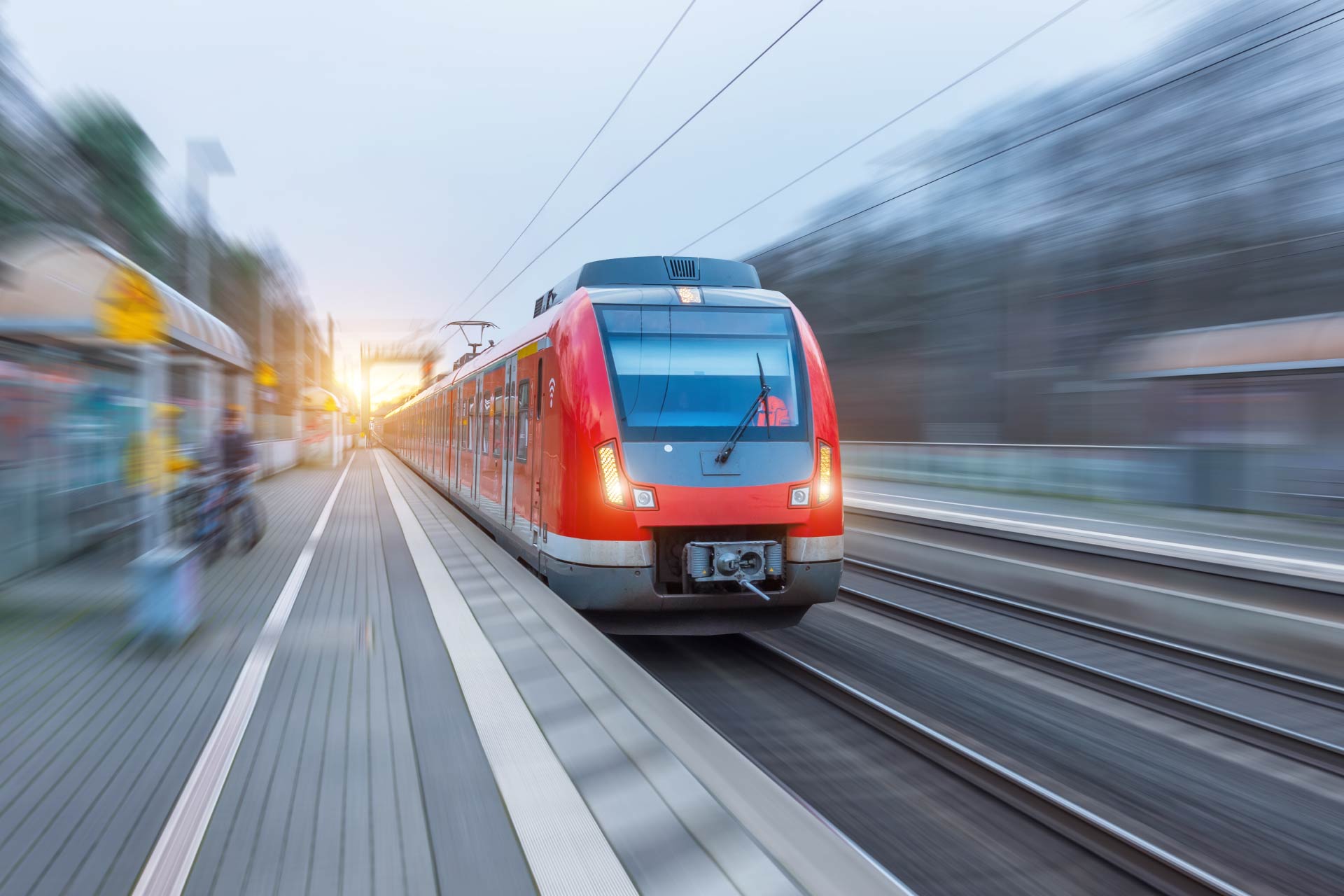
In the context of the UK Government's controversial decision to scrap the Manchester leg of the HS2, new research co-authored by Dr Steven Chen presents timely evidence which highlights how high-speed rail (HSR) connections boost interfirm finance for local businesses.
The relationship between trade credit and access to private information
While several studies have shown the macroeconomic benefits of HSR networks on regional economies and labour markets, it is unclear how such large infrastructure investment may affect suppliers' willingness to provide trade credit to their customers.
Trade credit – an arrangement in which an organisation can buy goods from suppliers without paying upfront – is the most prominent source of interfirm financing for businesses1.
Prior studies suggest2 that the prevalence of trade credit is in part due to the suppliers' advantage derived from their exclusive access to private information that is not readily available to financial institutions.
This ‘soft information’ refers to any private information - often non-financial -, including corporate culture, employee morale, customer experience, etc, which can inform a supplier’s decision on their relationship with clients.
Although some studies3 have investigated the impact of financial reporting on trade credit, its connection to ‘soft information’ remains unexplored.
To fill this gap, I have worked alongside researchers from UK and Chinese universities to examine the impact of ‘soft information’ on firms' access to interfirm financing through suppliers, by exploiting a quasi-experimental setting of staggered openings of HSR connections.
Chinese HSR network as an exogenous facilitator of ‘soft information' acquisition
China has the largest HSR network in the world, with a total mileage of 36,000 kilometres built in the past 15 years across the country.
For the purpose of our investigation, ‘soft information’ entails any useful information a supplier can acquire only through a site visit that would not otherwise be available to them.
We argue the opening of HSR lines in the borrowing firms' home cities would reduce the journey time between customers and suppliers, making it more convenient and cheaper for the suppliers to visit and acquire private information about their customers.
The research team manually collected detailed information, including the opening date, operating speed, total distance and total journey time, for all 106 HSR lines currently operating in China.
HSR-connected cities receive significantly more trade credit than those in cities without HSR lines
HSR impact on interfirm credit, firm transparency and productivity
Using a large sample of 25,714 observations from 3,130 firms between 2003−2018 and a difference-in-differences research design, we document consistent evidence of firms in HSR-connected cities receiving significantly more trade credit than those in cities without HSR lines.
Our channel analyses reveal that HSR openings improve customers information environment, meaning more frequent, faster and cheaper visits help increase suppliers' access to ‘soft information’.
This finding suggests the improved access to information, as well as the reduction in information asymmetry between customers and suppliers, is a plausible mechanism through which HSR openings can influence trade credit.
We expand our investigation by undertaking subsample analyses which show the effect of HSR openings on trade credit is more pronounced amongst:
- Non-state-owned firms
- Firms with a high degree of asset intangibility
- Firms facing high market competition
- When economic policy uncertainty is high
Collectively, these results suggest the positive effect of HSR on trade credit is stronger for customers with poor information transparency.
Our investigation also demonstrates that the positive effect of HSR connections on trade credit is stronger when the customer-supplier geographical distance is within the optimal range for the HSR journeys (240-1,800 kilometres).
Finally, we examine the economic consequence of improved access to supply chain financing, and find that firms which receive generous trade credit from suppliers after HSR openings tend to enjoy higher levels of investment and productivity.
Implications for policymakers and managers
While economists and politicians have focused on the macroeconomic benefits of HSR networks, our investigation enriches the understanding of its microeconomic impact, specifically on access to supply chain financing.
From a geographical perspective, this has a clear managerial implication for business owners or managers aiming to establish presences in new locations.
Prioritising locations with HSR connections - and better transport connectivity in general – should be considered as it boosts the chances of gaining access to better financing.
In light of the expected rapid expansion of HSR networks across the world, our study offers timely evidence and serves as a relevant reference for policymakers.
Despite the substantial capital investment, our research indicates that in addition to benefits related to economic growth, labour mobility, sustainability, etc, the opening of HSR lines can play a positive role in the local economy.
This is via broadening financing channels, stimulating investment and improving productivity.
What does the decision to axe the northern leg of HS2 mean for local businesses?
Based on our study findings, Rishi Sunak's decision to scrap the Manchester leg of HS2 could mean businesses in the North will be severely disadvantaged, compared to areas with access to high-speed trains, such as the Midlands and London.
Overall, the exclusion of major northern cities will significantly undermine businesses and the economic development in the region.
Specifically, the decision could be particularly damaging to northern SMEs, as they tend to have limited financing sources, and therefore, are typically more reliant on interfirm financing, such as trade credit.
As a result, this would be arguably counterproductive to the ‘Levelling Up’ agenda and the Northern Powerhouse project which the UK Government had promised to businesses and communities in the North of England.
With this representing a once-in-a-generation infrastructure investment, the North will unfortunately miss out on the opportunity.
The damaging effect is likely to be profound and long-lasting, unless successive governments reinstate the HS2 plan or significantly improve the transport connectivity between the North and other UK economic hubs.
1 'The Value of Collateral in Trade Finance', 'Economic Policy Uncertainty and Short-Term Financing: The Case of Trade Credit', 'Trade Credit Contracts' and 'Trade Credit: Theories and Evidence'.
2 'Evidence on the Determinants of Credit Terms Used in Interfirm Trade' and 'Trade Credit: Theories and Evidence'.
3 'Accounting Quality and Trade Credit' and 'Financial Reporting and Trade Credit: Evidence from Mandatory IFRS Adoption'.
 |
Lecturer in Accounting |
|
You can read Steve's paper here: Huang, H., Chen, S. X., Lee, E., and Li, D. (2023). 'Information search costs and trade credit: evidence from high-speed rail connections', The European Journal of Finance. |